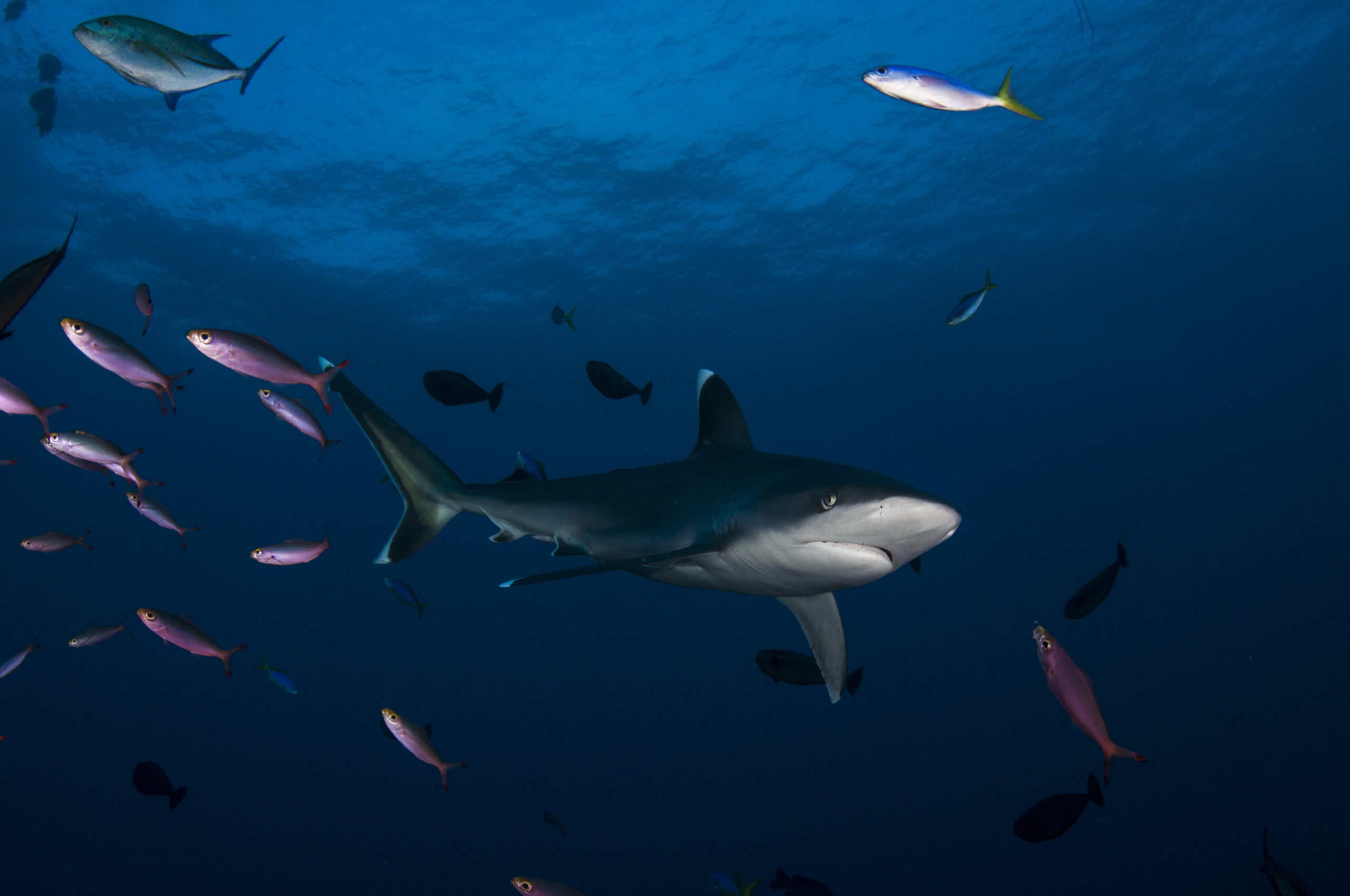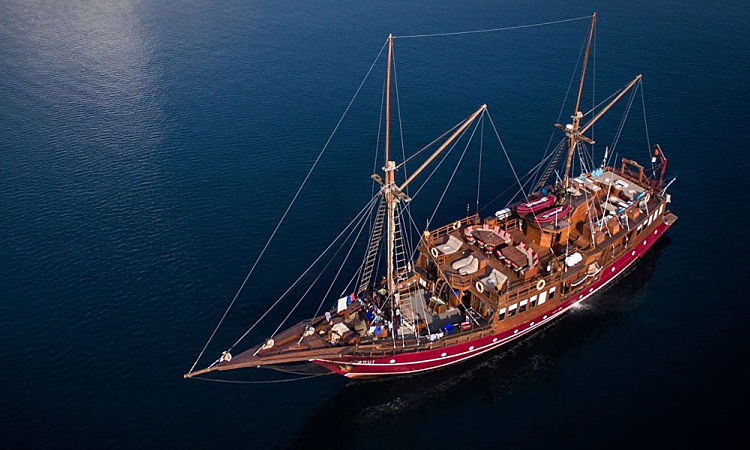
To help you plan your trip, we’ve prepared a list of basic information you’ll want to know before you book. Once your trip has been reserved, you’ll receive pre-departure information with all the details you need for your adventure.
Papua New Guinea’s international airport is in the capital of Port Moresby (Jackson’s airport). Qantas Airways, Air Niugini and Airlines PNG have daily flights from Australia to Port Moresby. There are also weekly flights from Fiji, Solomon Islands, Singapore, Manila, Hong Kong, Kuala Lumpur and Tokyo.
If you book a connecting through Port Moresby to or from another airport in PNG, it is advisable to book both international and domestic flight sectors with the same carrier.
FeBrina & Oceania
FeBrina & Oceania both operate from Walindi Resort (Kimbe Bay). To get to Walindi Resort, you will need to fly into Hoskins (HKN) airport, also known as Kimbe airport. There are daily flights from Port Moresby with either Air Niugini or Airlines of PNG. From Hoskins airport there is a fifty minute drive to Walindi Resort and airport transfers are arranged at time of booking.
We highly recommend that all visitors to PNG check current visa requirements and the most up to date advice with their local foreign office in advance of arrival, as PNG Immigration rulings are subject to change without notice. We recommend that all travellers obtain a visa in advance of arrival for this reason and to save time when you may find yourself with a short flight connection time in Port Moresby. For further information please visit the government website.
If you do plan on getting your visa on arrival, please ensure you have six months validity and at least one full blank page in your passport. Passport holders of certain nationalities require approval from PNG Immigration prior to arrival in order for visas to be issued. Australian Passport holders will also need to obtain a visa prior to travelling to PNG, they will no longer be able to get tourist visas on arrival.
Papua New Guinea has a small airport tax for visitors leaving on an international flight. Be sure you save a bit of cash for this.
If you are flying into PNG with Air Niugini and connecting same day to an Air Niugini domestic flight, then you should be allowed an additional 15kg checked luggage allowance for dive gear. This is an arrangement between PNG Divers Association and Air Niugini. Some counter staff might not know of this, but it is always worth asking the question. Regular weight allowances for economy passengers on Air Niugini are 23kg for international and 16kg for domestic flights.
In general you will find high temperatures and humidity all year round. The climate is tropical with the coastal plains averaging a temperature of 28°C (82°F). The relative humidity is quite high and ranges between 70 and 90 percent.
There is extreme seasonal variation in rainfall and this is linked to the monsoons. Generally speaking, there is a dry season from June to September and a rainy season from December to March. Typhoons can hit PNG from December to mid-March.
Water temperatures in PNG can vary depending on the location and the season. The waters around Port Moresby and the Eastern Fields are noticeably cooler than other areas due to currents circulating up from southern latitudes. In this area temperatures can range between 24-28°C (74-87°F) and a full wet suit with a minimum of 3mm is recommended, as well as a dive skin plus hood. The waters in Madang, the Wewak area and the Bismark Sea tend to be warmer 28-30°C (82-84°F).
Dive skins and Lycra suits can be used on a lot of dives, but it is still prudent to take a wet suit.
Most dive sites in PNG offer fairly easy diving with little or no current. However, there are dive sites which most of the liveaboards visit, that are open-ocean pinnacles where the currents may be stronger. Diving the pinnacles can be tricky and appropriate precautions are made by the various crews to ensure your safety and to make the experience enjoyable.
The three main Island groups visited for diving are quite different in geography although all offer equally stunning diving. These differences mean a wide variety of diving environments from those strong current pinnacles to low, slow ‘muck’ dives. In addition, you’ll find fringe reefs, remote reefs, coral walls, deep-sea mounts and a variety of WWII wrecks.
Visibility at most dive sites is superb at 100-150 feet (30 – 45 meters) sometimes 200 feet (60 meters) while at others it is marginal at 40 – 60 feet (12 – 20 meters) due to the location such as near Wewak or an inner lagoon.
Liveaboards tend to relocate to different areas depending on the weather and the seasons. This enables them to offer you the kind of varied and exciting diving that is consistent with PNG’s reputation for world class underwater action as you will be diving each region during optimum weather conditions.
The diving is accessible to all levels of certified divers from Open Water upwards (there’s no minimum number of logged dives required) but to get the most out of your PNG diving experience, an Advanced Open Water certification is recommended, so that you’ll feel completely comfortable at all the dive sites. Dive Masters will access your ability and counsel you regarding the diving conditions.
Some divers feel that the most favorable months are from May to November, although with its tropical climate and warm water temperatures all year round, there is never a bad time to dive PNG!
You will need to take the minimum amount of luggage with you and pack light if you are taking domestic flights within PNG. The baggage allowance on domestic flights is not generous.
All PNG liveaboards offer scuba rental gear and wetsuits on board. Computers and torches (flashlights) may also be rented. Reef/current hooks are used on some dives and most liveaboards will supply them. All rental gear must be reserved in advance.
Make sure you are up-to-date on routine vaccines. These include measles-mumps-rubella (MMR) vaccine, diphtheria-tetanus-pertussis vaccine, varicella (chickenpox) vaccine, polio vaccine, and your yearly flu shot. The Hepatitis A vaccine is recommended because you can get hepatitis A through contaminated food or water in PNG, regardless of where you are eating or staying. You can also get typhoid through contaminated food or water. The Centre for Disease Control (CDC) recommends this vaccine for most travelers, especially if you are visiting smaller cities or rural areas or if you are an adventurous eater.
It is advisable to talk to your doctor about malaria prevention in PNG. You may need to take prescription medicine before, during, and after your trip to prevent malaria.
Current studies show that you should wait at least 24 hours after multiple days with repetitive diving before flying. Please keep this in mind before you book your onward international or domestic flights.
The currency of PNG is the Kina. This should be available for exchange at currency counters within most international airports before your trip. If there is a problem obtaining Kina before your departure there is an ATM as well as a currency exchange desk at the international airport upon arrival in Port Moresby. Most PNG resorts and liveaboards accept AUD, USD, Euro and Kina as well as all major credit cards although it is advisable to check with the boat you are cruising on.
Note that all tourism related services prepaid from outside PNG are currently exempt from GST (goods & services tax) and all published rates do not include for GST. This is a PNG government incentive and subject to change without notice. All purchases/services paid for within PNG are subject to an additional 10% GST charge.
Divers will be asked to pay environmental reef and hyperbaric chamber fees. We will inform you at the time of booking if this is payable in advance or on-board.
To respect the local traditions and customs, women are asked to wear a skirt or pants that cover the upper legs while outside their resort or liveaboard.
We strongly recommend comprehensive travel insurance to cover against unforeseeable events including personal & business impediments, illness, travel delays and missed flight connections. We hate seeing any of our clients fall into the category of unfortunate travelers who are without coverage for unexpected circumstances
Diving insurance: the liveaboards now require diving insurance. You must not confuse regular travel medical and/or travel insurance with diving-specific insurance such as DAN (Divers Alert Network) or Dive Assure. This type of insurance will cover all of your scuba diving and snorkeling activities, including the costs for recompression chamber treatment and emergency air evacuation. These are not covered by the average travel insurance.
We recommend Dive Assure as they are one of the few companies who offer insurance which includes general travel insurance, including trip cancellation …. plus full dive coverage.
Click here or on the button in the side panel to access Dive Assure directly.
Our tailor made Liveaboard Finder. It’s the easiest way to see the best offers, check availability in different destinations and get diving quickly!

Our biggest strength is our direct contact with diving enthusiasts. Anything unclear? Get in touch:
Our call us directly on:
Our team takes calls in 🇬🇧 🇩🇪 🇳🇱 🇫🇷 🇵🇹 🇸🇰
Subscribe to our Newsletter to stay tuned:
Stay adventurous, follow us!